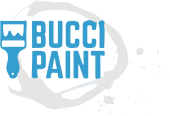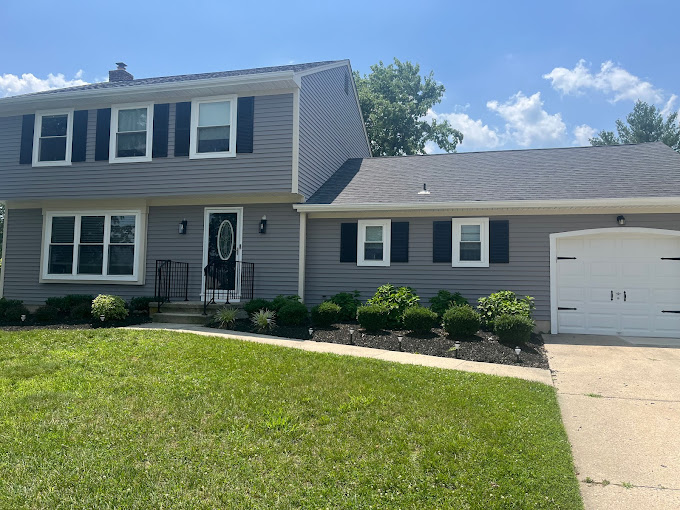In Evesham, NJ, where seasonal changes bring both harsh winters and humid summers, choosing the right exterior painting finish is not just about aesthetics—it’s about protecting your home and ensuring your investment lasts. Weather extremes, UV exposure, and moisture can quickly wear down inferior paint products, making durability a top priority for every homeowner. Selecting the right finishes and application techniques can mean the difference between repainting every few years and enjoying a flawless exterior for a decade or more.
Key Takeaway: The longevity of your exterior paint job depends on high-quality finishes, proper surface preparation, and professional application tailored to your home’s needs.
Understanding Durable Exterior Painting Finishes
The Science Behind Exterior Finishes
Durability starts with formulation. High-quality exterior paints are designed with advanced resins and pigments that resist cracking, peeling, and fading. The balance between flexibility and hardness ensures the paint can expand and contract with temperature changes without losing adhesion. Additionally, UV-blocking additives help maintain color vibrancy even under direct sunlight, which is critical for homes in New Jersey’s sunny summer months.
Why Finish Type Matters
The sheen level you choose impacts not only appearance but also performance. Satin and semi-gloss finishes are often preferred for siding because they resist moisture and are easier to clean than flat finishes. For trim and accents, higher gloss levels enhance detail and create a protective barrier against frequent contact and environmental wear.
Tailoring to Your Home’s Surface
Brick, stucco, wood, and fiber cement all require specific paint formulations and preparation steps. For example, masonry surfaces benefit from elastomeric coatings that bridge small cracks and keep water out. If your home includes stucco or concrete elements, consider specialized masonry coatings in New Jersey to improve resilience and longevity.
Preparing Surfaces for Long-Lasting Results
Importance of Surface Cleaning
A finish is only as good as the surface beneath it. Dirt, mildew, and chalking must be thoroughly removed to ensure strong adhesion. Professional washing techniques prevent damage to delicate siding while creating a clean canvas for the paint to bond effectively.
Repairing Before Painting
Cracked or damaged areas compromise durability. Proper repairs, whether it’s fixing minor wood rot or handling larger issues, prevent moisture infiltration that can lead to peeling. If your home needs more extensive work, drywall repair services in New Jersey can restore interior integrity where water damage has spread.
Priming for Performance
High-quality primers not only enhance adhesion but also seal porous surfaces and block stains. On older homes, primer acts as a bridge between aged substrates and new coatings, helping achieve a smooth, consistent finish.
Weatherproofing and Seasonal Considerations
Adapting to New Jersey’s Climate
Evesham experiences humidity spikes and freezing temperatures, both of which stress exterior coatings. Selecting paints labeled for moisture resistance and flexibility is essential. Elastomeric and acrylic latex paints are excellent options, as they maintain performance despite temperature fluctuations.
Timing Your Project
The best time for exterior painting is when temperatures are mild—typically spring or early fall in New Jersey. This ensures proper curing and reduces the risk of blistering or cracking caused by extreme heat or cold during application.
Guarding Against UV Damage
Constant sun exposure can break down pigments and resins over time. Choosing finishes with built-in UV inhibitors preserves color and prevents chalking. This is particularly important for south-facing walls and homes without much shade.
Expert Application Techniques
Why Professional Application Matters
Even the best paint won’t perform if it’s applied incorrectly. Professional painters use techniques that achieve consistent coverage and thickness, ensuring long-lasting protection. They also understand how to handle architectural details and prevent issues like lap marks or flashing.
Tools and Technology
From airless sprayers to advanced brush techniques, proper equipment helps achieve a flawless finish. Professionals also monitor weather conditions during the project to prevent premature drying or moisture-related failures.
Safety and Compliance
Exterior painting often involves working at heights and handling potentially hazardous materials. Hiring a professional ensures the job is done safely and in compliance with local regulations.
Maintaining Your Exterior Finish
Regular Inspections
Annual checkups allow you to catch issues early—before peeling or mildew becomes widespread. Simple touch-ups can add years to your paint’s lifespan, reducing the need for a complete repaint.
Gentle Cleaning
Dirt and mildew not only dull your home’s appearance but can also damage finishes. Soft washing or light scrubbing with mild cleaners keeps surfaces looking fresh without harming the coating.
Complementary Upgrades
Pairing painting projects with other improvements, like molding and trim updates in New Jersey, can enhance curb appeal and protect vulnerable edges from water damage.
Answering Common Questions
What type of paint lasts the longest for exterior use? Acrylic latex paints generally offer the best durability for exterior applications. They provide excellent adhesion, flexibility, and resistance to moisture, making them ideal for New Jersey’s climate.
How often should I repaint the exterior of my home? Most high-quality paint jobs last between 7 to 10 years, but this depends on factors like surface material, exposure to elements, and maintenance. Regular inspections can extend this timeline.
Can I paint over old exterior paint? Yes, but only if the old paint is in good condition. Loose or peeling areas must be scraped and sanded before applying a new coat. A professional assessment ensures proper preparation.
The Role of Color in Durability
Darker shades absorb more heat, which can accelerate fading and thermal movement in materials. Lighter colors reflect sunlight and generally maintain their look longer, especially on large wall surfaces.
How Proper Prep Prevents Problems
Skipping preparation steps is the leading cause of paint failure. Investing in thorough cleaning, repair, and priming ensures the finish bonds properly, avoiding costly repainting down the line.
Why Choose Professional Exterior Painting Services
DIY may seem appealing, but professional painters bring expertise, quality materials, and efficiency that deliver long-lasting results. If you’re ready to protect and beautify your home, consider scheduling expert exterior painting in New Jersey for a finish that truly lasts.

